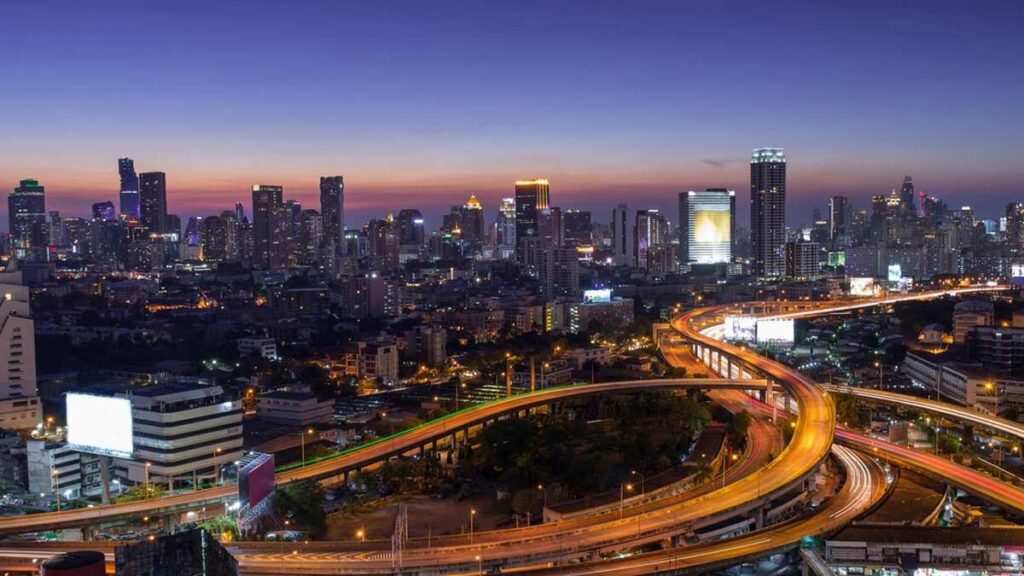
Inefficient Waste Management
Gurgaon generates hundreds of tons of solid waste daily, but waste management remains highly inefficient. Though waste segregation is mandated by the Municipal Corporation of Gurugram (MCG), the process is not effectively implemented at the ground level. Most of the city’s waste is dumped into open landfills, causing severe environmental damage, particularly at the Bandhwari landfill site. This landfill, located on the border of Gurgaon and Faridabad, is a massive health and environmental hazard. It emits harmful gases and contaminates groundwater, posing a risk to nearby communities. The lack of an effective recycling system and inadequate waste processing plants only exacerbate the problem.
Air Pollution
Air quality in Gurgaon is one of the worst in the country, with pollution levels often reaching hazardous levels during the winter months. Vehicular emissions, construction dust, and industrial pollutants are the primary contributors to this poor air quality. Additionally, Gurgaon is significantly affected by crop stubble burning in neighboring states like Haryana and Punjab, further deteriorating the air during the post-monsoon period. The city’s rapid urbanization, which includes a constant boom in construction activity, worsens air pollution, contributing to respiratory illnesses among its residents.
Despite attempts to regulate emissions and ban construction during peak pollution periods, compliance remains low. The lack of adequate public transportation forces residents to depend on personal vehicles, worsening traffic congestion and pollution.
Traffic Congestion and Poor Public Transport
One of the most visible civic issues in Gurgaon is its traffic congestion. Despite being a well-planned city with numerous expressways and wide roads, the rapid influx of people and vehicles has rendered many of these infrastructures inadequate. Key roads such as MG Road, Golf Course Road, and NH-48 often experience severe traffic jams, especially during peak hours. A lack of efficient public transportation options further exacerbates the problem, as people rely on personal vehicles for their daily commute.
While the city has introduced the Rapid Metro and expanded bus services, these modes of transportation serve only a small fraction of the population. Most residents find these options unreliable, and Gurgaon lacks a comprehensive mass transit system like Delhi’s Metro network.
Sewage and Drainage Issues
The sewage and drainage systems in Gurgaon are woefully inadequate, particularly during the monsoon season. Poor urban planning and inadequate infrastructure result in frequent waterlogging across the city. Several areas, such as Sector 14, Palam Vihar, and Sohna Road, are notorious for flooding during heavy rains, which disrupts traffic and damages property.
A major reason for this is the absence of a proper stormwater drainage system in many parts of the city. The existing infrastructure is either clogged with solid waste or poorly maintained, leading to backflow into streets and homes. The poor drainage system also exacerbates the issue of sewage mixing with rainwater, causing foul odors and increasing health risks for residents.
Illegal Construction and Encroachment
Illegal construction and encroachment have become major civic issues in Gurgaon. Unauthorized buildings and encroachments on public spaces disrupt urban planning and create additional strain on the city’s already fragile infrastructure. Many residential and commercial buildings in the city have been constructed without proper regulatory approvals, often flouting environmental norms.
Encroachments on footpaths and roadsides are also a significant problem, leading to narrower streets, which worsen the traffic situation. This illegal activity not only reduces the availability of public spaces but also affects essential services like fire safety and emergency response, as many areas become inaccessible.
The Municipal Corporation of Gurugram (MCG) has launched several drives to curb illegal constructions, but enforcement remains inconsistent. Many builders operate with impunity, taking advantage of legal loopholes and political connections to bypass regulations.
A ReBoot is required to tackle the issues in Gurugram
Gurgaon’s civic and sanitation issues are complex and deeply rooted in its rapid urbanization and unplanned growth. Addressing these problems will require coordinated efforts between the government, civic authorities, and the residents themselves. There is a need for better infrastructure, stricter enforcement of regulations, and an increased focus on sustainable urban planning to ensure the long-term livability of the city.
Suggested News Articles for Further Reading:.
- “As Gurgaon reels under garbage crisis, meet the workers toiling hard to keep it clean – The Indian Express
Explores the challenges around the Bandhwari landfill and its environmental impact. - “Gurgaon’s air this July worst in 4 years reveals CPCB data” – Times of India
Highlights the causes and effects of air pollution in Gurgaon, including industrial emissions and vehicular pollution. - “Roads chock-a-block, commuting in Gurugram a nightmare” – The Tribune
Covers the issue of growing traffic congestion in Gurgaon. - “Heavy rain inundates key Gurugram roads, brings parts of city to standstill” – The Hindustan Times
Reports on recurring waterlogging and flooding issues in the city, particularly during the monsoon season. - “Gurugram MC identifies 555 unsafe buildings” – The Tribune
Discusses the civic challenges posed by unauthorized constructions and the efforts to remove them.
